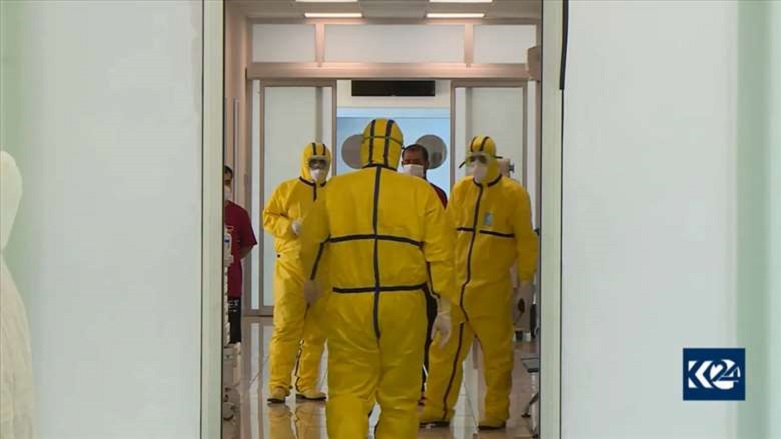COVID-19: Kurdistan Region records over 800 new cases in 24 hours

ERBIL (Kurdistan 24) – The Kurdistan Region’s Ministry of Health on Sunday announced a new uptick of over 800 coronavirus cases in the last 24 hours, raising the total number of cases to over 50,000.
The ministry’s daily statement said it had conducted 5,233 tests during the past 24 hours, raising the total of such tests 482,055 since the outbreak began in the Kurdistan Region in early March.
According to the health ministry, the total number of infections in the Kurdistan Region reached 51,077, including 32,378 recoveries, and 1,847 deaths.
More Budget to Fight COVID-19
The Kurdistan Region’s Minister of Health, Saman Barznji, announced on Saturday that the regional government had allocated three billion IQD to combat the new coronavirus.
“The cabinet decided to allocate a new budget of three billion IQD to fight the virus during the coming fall and winter seasons when an increase in the rate of infections is expected,” Barznji said in a press conference.
Kurdistan Region Prime Minister Masrour Barzani announced that the region has so far allocated nearly 28 billion Iraqi dinars in combating the coronavirus pandemic, according to a speech Barzani gave the Kurdistan Parliament on Monday.
The health official also noted that the ministry had received a proposal to reimpose a regionwide curfew due to the high rate of infections. He stated that the ministry is “yet to discuss any decision to reimpose a curfew in the region, but we are currently studying it.”
On Friday, the Directorate of Public Health in Duhok province called for reimposing a curfew in the Kurdistan Region for no less than two weeks. Duhok has recorded a proportionately higher number of cases than other parts of the region in recent months.
The World Health Organization (WHO) on Saturday warned that an upcoming religious gathering called “Arbaeen” and the fall and winter seasons may significantly increase the number of infections.
Editing by Karzan Sulaivany
